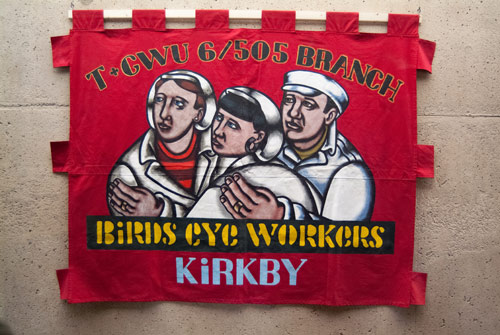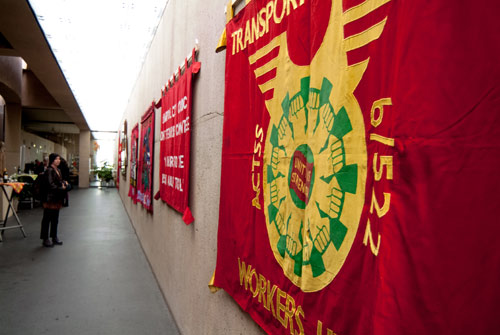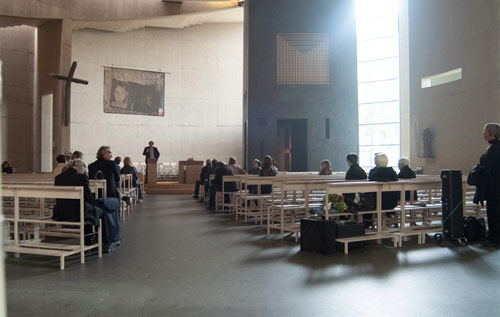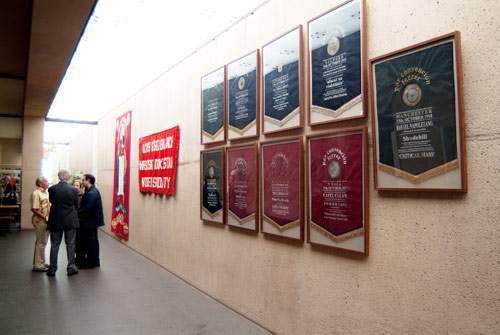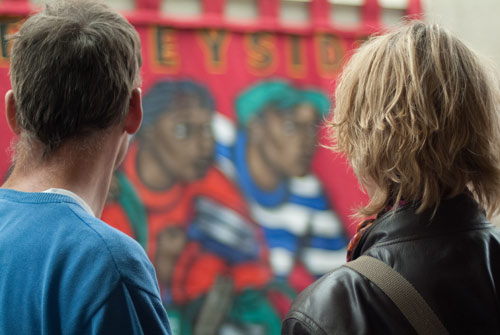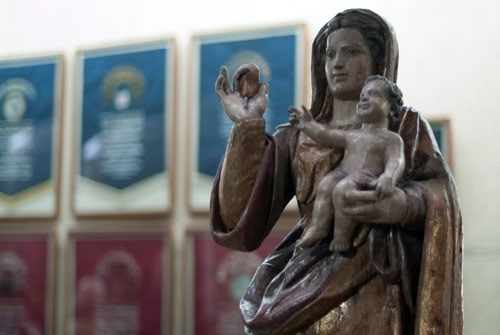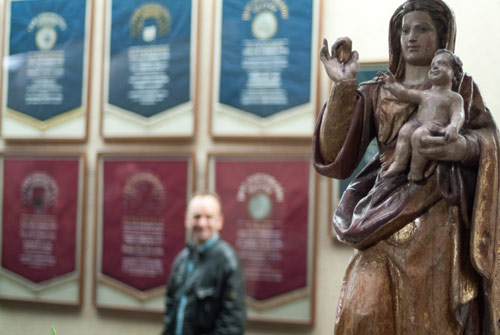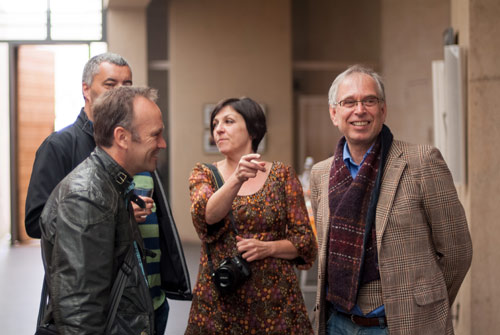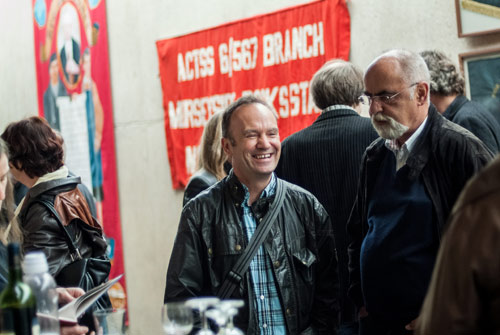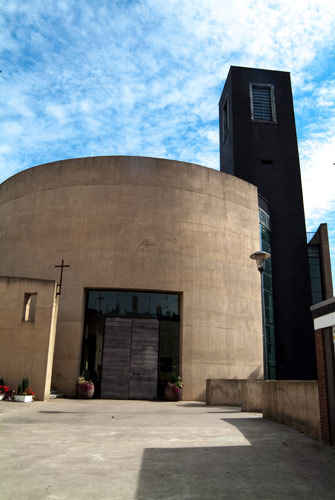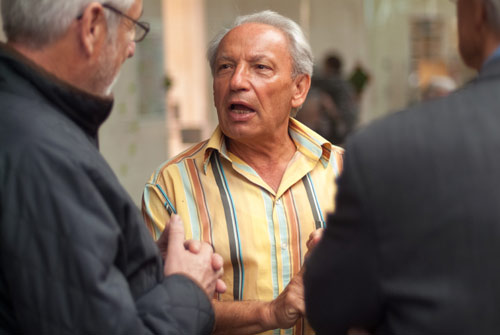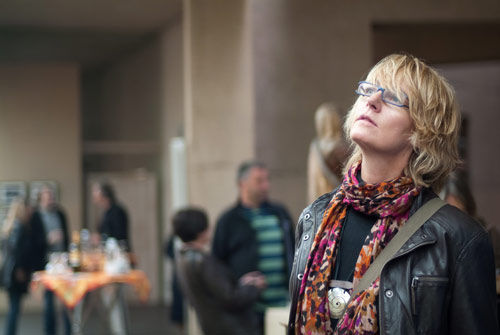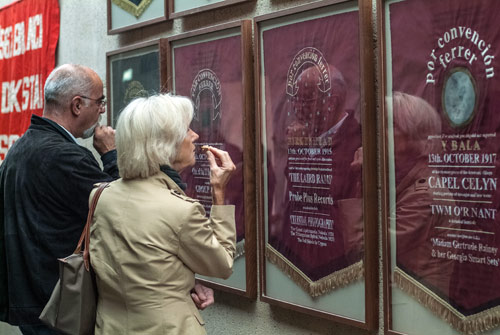| |
|||||||||||||
|
13.
POWER TO THE PEOPLE - THE ART AND THE SOCIAL
An exhibition of works by artist David Jacques Liverpool in the Church
of St. Theodore
Born in 1964 in Liverpool, he is aware of its origin from the working class has always been aware. And who knows the history of Liverpool as one time the largest and most important port city in the world knows that this experience are inextricably linked to poverty and economic pressures experienced. Difficult living conditions, outbreaks and radical trade union opposition to the existing social conditions. With ruthless unemployment and various forms of solidarity among the socially disadvantaged.
Underpinning this claim is due to the long history of Western art, the painting by Flemish and Dutch masters, the paintings of Goya and the French painter during the French Revolution, the painting of German Expressionists of the style of George Grosz and Otto Dix, the dedicated mural of Mexican artist and communist Diego Rivera.
Continues this tradition Jacques art stands firmly on a figurative foundation, which, based on the realistic representation that allows all sorts of forms of abstraction and conceptual art.
Said David Jacques has many pictures of history of the workers and the so-called "ordinary people" painted in Liverpool. In a series of large paintings he shows for example the radical campaigner for political and social justice in Liverpool's history over the past hundred years. The paintings are part of a permanent facility in a huge Liverpool pub and therefore an integral part of the public space and collective memory culture in everyday life.
Even Irish ancestry, with Liverpool in a city of many Irish immigrants living busy, Jacques in his art since long with the personal and social dimension of migration, even before the issue of globalization in the general consciousness came. Migration act many of his projects from the last few years, about painting portraits of emigrants and videos about emigration and migration histories.
To painting recently reinforced the artistic work with video added that allows in complex political and social issues, combine documentary and descriptive and reflexive conceptual aspects better with each other than to the painted image. Repeatedly were and Jacques artistic projects closely linked to practical life support. So in art projects with young people.
Thus,
in cooperation with the union, which he belongs. And so also in aid
projects in which refugees and migrants, allotment will be made available
to them through a creative and practical work with soil and plants
get a feel for the (new) country in which they live.
Persistently, Jacques employed for decades in the history and aesthetics of political and social movements in demand and struggle for better living conditions, especially the labor and trade union movement. It also includes stories of individuals in their courage and their resolve in standing up. These topics are also the focus of the exhibition in the Church of St. Theodore, which is located in a traditional working-class district and district with a high migration proportion in the population. On display are called banners that Jacques painted for several demonstrations, rallies and meetings as part of the political struggles in the Liverpool of the 1980s. As a reminder, then in England, the party led by the ruling Conservative Prime Minister Margaret Thatcher. Its policy of enhanced iron hand in England with drastic social injustice ruthlessness. A workers' and unemployment city like Liverpool was extremely affected by this policy.
Strengthened by ideals of solidarity and resistance to the policies of socialism Thatcher was different than in other English cities of Liverpool particularly large, but this exacerbated the situation and the social problems in the city also. The tradition of the banner as an expression of the political commitment in the British trade union movement has a long history. Jacques led his banners on this tradition by giving her at the same time gave a new artistic touch. Inspired by the aesthetics of political painters of South America, he brought a powerful, concise images of people on the traditional certain emblems and lettering banner. He points to the fact that social and political experiences also have an aesthetic. The aesthetic experience is inseparable from the experience of life. Each social class has its own aesthetic, and social and political struggle also needs its own aesthetic expression. The question of whether and how this insight into the aesthetic uniformity of the current media and consumer culture is still is, an interesting aspect of the exhibition. Besides the painted banners that Jacques for "globalization of solidarity", in support of the liberation struggle in Nicaragua and the struggle of workers against the closure of "their" factory in Kirkby Liverpool district, he shows some historical banners of other artists. Photos documenting beyond the practical use of the works of art in the political life of the people lived.
|
www.eightdaysaweek.org.uk

